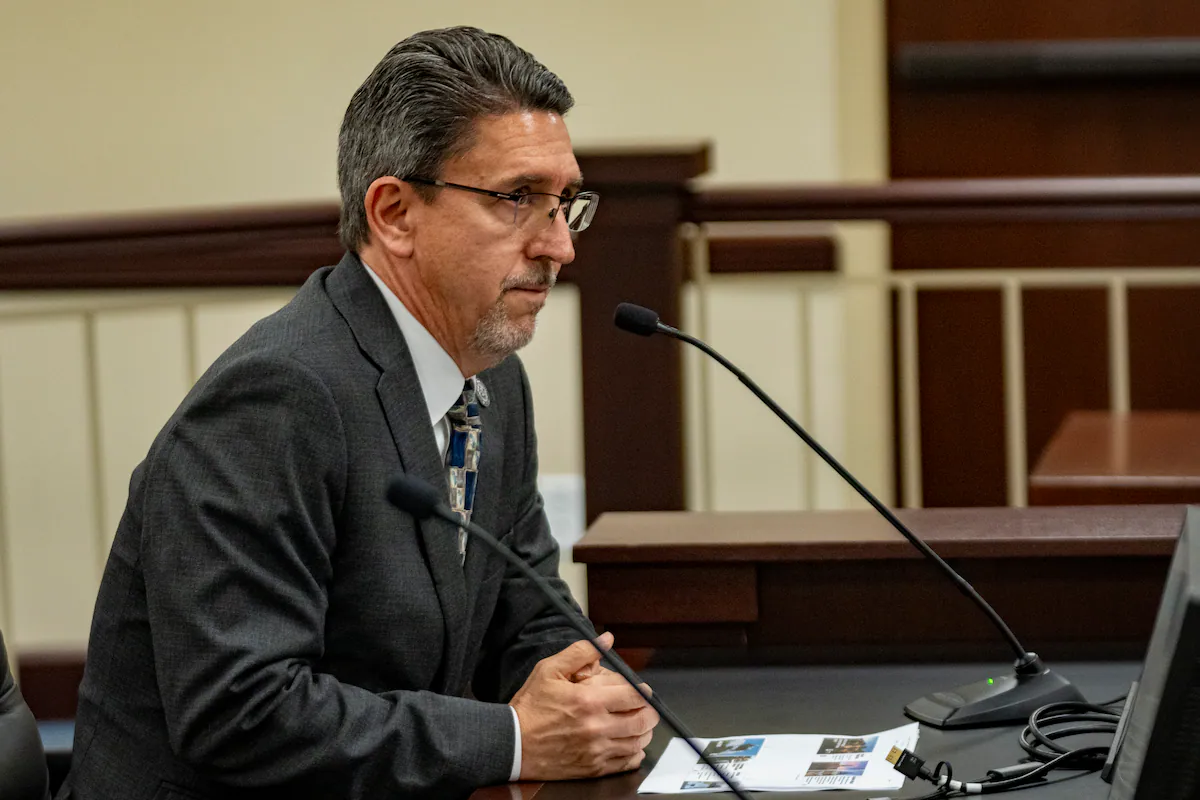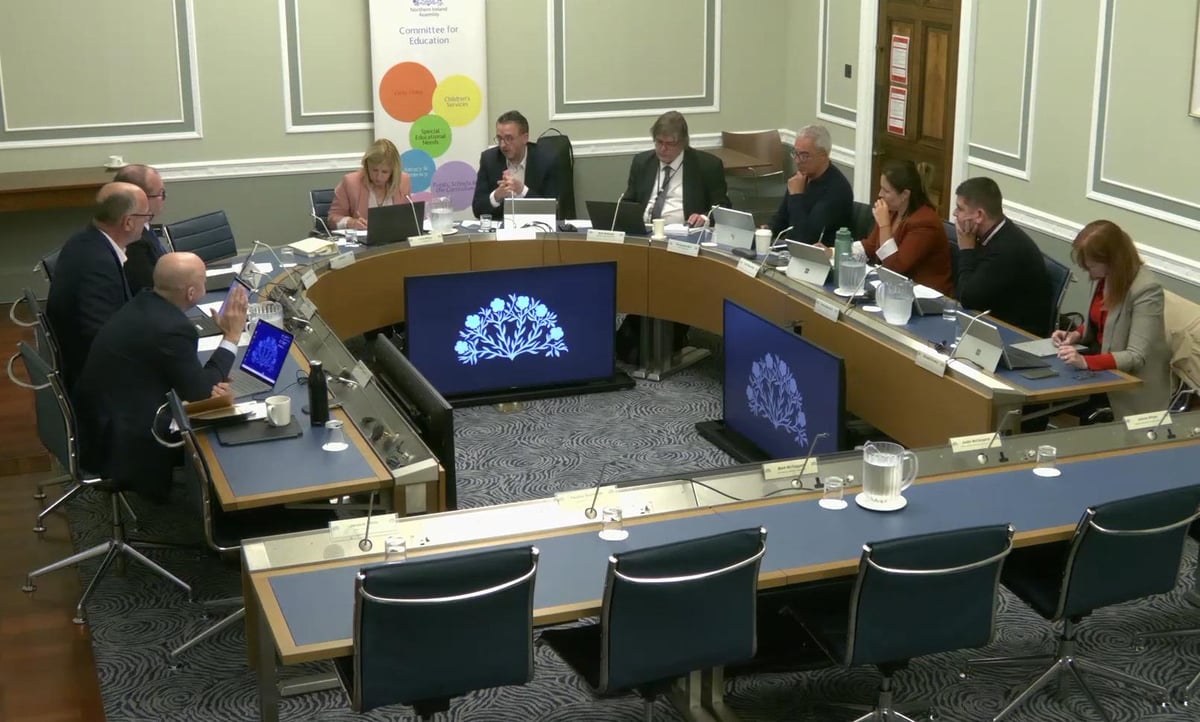
Utah lawmakers on Monday formally approved all but one of the budget cut plans they required from each of the state’s public colleges and universities.
And that leaves the singled-out school, Utah State University, in a major bind.
The Legislature this year slashed 10% of the tax dollars it appropriates for public instruction from each school’s budget, amounting to a $60.5 million cut overall. Schools were specifically instructed to eliminate academic programs that have low enrollment, few graduates or lead to lower paying jobs.
Each institution could then earn its share of the money back — if it showed that the funds would be reinvested in degrees that lead to high-wage jobs the state needs.
Now, without approval for its plans, USU in northern Utah is still mandated to come up its $12.6 million share of the cuts. But it’s stuck in limbo over whether it will be able to retrieve the money.
Lawmakers on the Executive Appropriations Committee criticized the school’s plans for reinvestment Monday, suggesting that Utah State didn’t meet the expectations of “what we’re trying to accomplish here.”
The most vocal opponent was House Speaker Mike Schultz, R-Hooper, who originally proposed the higher education cuts, citing “administrative bloat” and increasingly expensive degrees.
“Out of all the institutions, this is the one I have the most concerns with,” said Schultz, who is a graduate of Roy High School and did not attend college. The plans had previously received initial approval from the state last month.
The committee Monday ultimately voted to approve the plans for the other seven public institutions. USU will separately be required to revise its plan after it selects a new president and present that again to the Utah Board of Higher Education and the Legislature.
It’s unclear how long that will delay the Logan school. Its former president, Elizabeth “Betsy” Cantwell, stepped down in March after a brief 18 months at the helm. A committee is currently searching for a replacement, but there’s no specific date for when that person will be chosen.
Alan L. Smith has been serving as interim leader in the meantime and was abruptly thrown into the task of drafting a cut and reinvestment plan.
The school’s proposal included reducing employees by the equivalent of 120 full-time positions — largely through voluntary retirements — and slashing 14 academic programs. Departments also merged within the humanities as well as the sciences.
Of its cuts, Smith has said $3.4 million were related to “administrative efficiency.”
Smith told lawmakers Monday in his presentation that he had planned to reinvest most of the money back into “technologies and careers of the future,” including computing, artificial intelligence and engineering.
He also earmarked funds for expanding how many students could complete a degree in nursing, citing a nursing shortage in the state, including in northern Utah.
“We have to be more nimble,” he said.
But Schultz said he was confused why USU would prioritize nursing. Weber State University, he said, already has a renowned nursing program that serves that need. He called USU’s plan “duplicative” and suggested all schools in the state don’t need to be offering the same degrees.
“I think there’s other institutions that can pick that up,” Schultz said.
Schultz had similarly criticized the University of Utah, as well, for also planning to expand its nursing student enrollment. But the speaker said “at least the U. has a health focus” with its connected hospital on campus. The U.’s plan for its $19.6 million cut and reinvestment was approved.
At USU, Schultz said, the focus should be on its mission as a land-grant institution. That makes it uniquely positioned to offer programs studying natural resources, energy and critical minerals that the state needs employees in, he said.
Schultz said he wanted to see a proposal that included more research with innovative agriculture, too, including lessening Utah’s water consumption.
“These are things that are so important to our economy right now,” the speaker said.
The speaker also suggested that USU’s reorganization of colleges and administrative positions wasn’t effective and that he didn’t like the $1 million proposed for graduate teaching support.
Smith countered that having more graduate students in the classrooms means the school can offer more courses and move students through faster.
He also said that the school is already investing in natural resources and agriculture programs through other funding sources. And the chemical engineering part of its reinvestment proposal is also part of that.
“That is very much a priority to the institution,” Smith said.
Additionally, Smith noted that when USU recently doubled its nursing student capacity from 60 to 120, the spots were immediately filled and that still didn’t put a dent in the number of students interested. He said there should be “room for multiple institutions” to offer that.
“We cannot serve all of those pre-nursing students,” he said. “There’s a clear strong interest and strong need in the state.”
Overall, the committee voted to defer action on USU and move the other schools’ plans forward, with three Democrats opposed to the rejection — Sens. Karen Kwan, Kathleen Riebe and Jen Plumb.
Those three said they had issues with the Legislature’s set process for the budget cuts and didn’t feel there was enough community input on the plans.
“We are missing sight of critical thinking and good humanities programs,” added Riebe, D-Cottonwood Heights, who has advocated for defending the liberal arts in the face of cuts.
Schultz said if the plans weren’t approved then none of the schools would see their slashed money returned to them.
He also said overall, he was “really impressed” with the plans and the amount of administrative costs cut. He commented that’s “really just a win for students.”
The speaker specifically applauded Weber State University for saving students money by removing class fees; Southern Utah University for already having “the leanest per student budget in the state;” and Utah Tech University for cutting almost all of its share from leadership costs.
The legislation on the cuts was ultimately led by Rep. Karen Peterson, R-Clinton, and Sen. Ann Millner, R-Ogden, who was formerly the president of Weber State.
Peterson said Monday: “It’s critical that we make sure every dollar counts” in higher education.
They were congratulated on their effort by Schultz and Senate President Stuart Adams.
Schultz added, too, that if he had ended up running the legislation, “it probably would’ve been much harder to deal with all the way around.”



